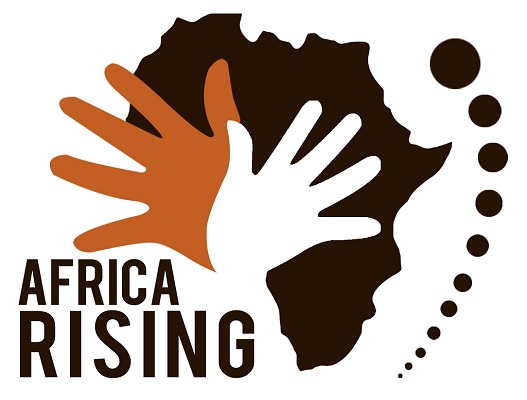
At the launching of OAU in 1961, Emperor Haile Selassie had made a visionary statement. “His welcoming address struck the keynotes of compromise and unity that guided the proceedings, thus: It was the duty and privilege of the delegates to rouse the slumbering Giant of Africa, not to the nationalism of Europe of the nineteenth century, not to regional consciousness, but to the vision of a single African brotherhood bending its united efforts towards the achievement of a greater and nobler goal. While we agree that the ultimate destiny of this continent lies in political union, we must at the same time recognize that the obstacles to be overcome in its achievement are at once numerous and formidable.”
Do we remember the days, weeks, and months when the call for the rise of Africa, embedded in the motto “Africa Rising” as a continent, was echoing not only in the corridors of authority but also in the streets of Africa and the black Diaspora in general? Do we remember that the new vision was born of or coincided with the transition from the Organization of African Unity to the new African Union? That was not certainly a time of coincidence, but something that was born of the boundless hopes and dreams of Africans who saw in that transition an opportunity to live their visions for the first time since the decolonization process took place, and the call for independence was replaced with the call for the complete political, economic, and social emancipation of our continent from growing poverty, rampant corruption, fratricidal conflicts, and spiritual bankruptcies.
As such it was a noble and visionary call. It was a timely call at a time when the rest of the world was forgetting or ignoring Africans as hopeless people who were condemned to look for crumbs from the tables of the rich nations and wait until their salvation would be postponed until they are mature enough to properly administer the donation as and aids that were sent to alleviate their hunger and not to make them feel full or put an end to their hungers and sufferings.
“Africa Rising!” was indeed a great slogan, a reflection of hope, although it was not clear at that time or even now whether Africa is rising or sleeping on the laurels of the victories it scored against colonialism. “Africa Rising!” was indeed a simple and powerful vision, a call for action, and an expression of the resilience and optimism of more than one billion people whose dreams were fading and whose existence was in jeopardy. Off course, the call for Africa to rise was a call for a holistic approach that first started with a radical diagnosis of the political, economic, and social ills from which the people of Africa were subjugated.
When the call for Africa to rise was made by politicians of all hues and colors, Africa was not sleeping. It was rather trying to wake up and had lost its direction or did not know which direction to take in order to launch its program of deep reforms of its political systems. Politically, speaking, democracy in Africa was either totally absent or distorted and made dysfunctional and dividing lines between dictatorship and electoral politics were made dim and indistinct. Military coups were rampant and most of the coup makers disguised their unconstitutional actions in glittering democratic rhetoric.
Africa had indeed to rise from this kind of political brokenness and the absence of confidence in a possible redemption from outside the continent. Africa had to rise from its political slumber and elite control. African rising! Wad a call to rise against political stagnation and dysfunction. And it was to the point.
Africa was also slumbering on the other no less important front, which is economical in nature. When the motto was turned into a collective call for action, Africans were living with and trying to appease the demons of poverty, famines, joblessness and hopelessness. African agriculture produced less food than it was needed by the fast-growing population. The industrial sector in Africa had not even started to take baby steps and unemployment was rampant and the average annual incomes of most Africans were plummeting.
The fate of the average African families had worsened due to the population explosion and the crisis in the farm sector and in industry thereby darkening the prospects of educational opportunities and the chance to rise in society. African economic integration remained more a myth than a reality. Nationalism was rampant and African solidarity still remained on paper. A shared language did not expedite progress. “A shared language, although it provides for to deepen inter-state relations in any regional structure. Language barriers hindered trade which then slowed down Regional Integration schemes whilst language similarities failed to boost trade which is an essential component of Regional Integration.”
Socially, the traditional African rural communities had never seen their conditions improving and their traditions were under ceaseless attacks from foreign cultural and the foreign media that was portraying the continent a still dark one. The traditional values of hundreds of millions of Africans and their genuine aspirations for progress based on their traditions were neglected if not undermined by adverse foreign influences and domestic forces out of tune with the aspirations of most Africans. A social crisis had reached a severity unbearable to most Africans across the continent.
At the time of the announcement of the now overlooked or neglected “Africa Rising!” slogan, African culture was marginalized and overlooked and the ruling ideology that colonial cultural pundits inculcated was that Africa was considered not only open for cultural development but also unable to copy from others. According to this view, Africa as a continent had no culture worth speaking of and in a few cases, culture was recognized, it was considered backward, unable to stand by itself unless supported by the strong arms of the former colonialists or unless they were replaced by Western culture that should replace it as both a symbol and alternative of cultural development or modernization.
Although African traditional culture was languishing in obscurity and neglect what we may call African elite culture, that is to say the day to day practices as expressed in art and literature was in the process of explosion with intellectuals taking the front seat of such a promising development. African culture, expressed in many novels and creative writings in general had to wait three decades before it produced some of its best imaginations that put it on par with any literature in the World.
Meanwhile, traditional African culture remained entrapped in illiteracy and poverty. Despite the motto of “Africa Rising” African culture remained imprisoned in stagnation or serving as a feast for the eyes of the Western tourists who saw in it an opportunity to exploit it for making illegal money in the legal and illegal cultural markets of the West.
Colonialism did not come to Africa only to occupy and control our natural resources although that was its ultimate objective. Colonialism first controlled the African mind and prepared it for accepting willingly, if not by force, colonial rule and colonial occupation. Occupation of the mind preceded territorial occupation. It sent missionaries from Europe to preach to them the doctrine of submission as if Africans had never had their own cultures, belief systems, and religions for thousands of years before the advent of foreign rule.
African education was thus tailored to reflect European educational systems that subtly promoted the idea that since Africans could not educate themselves or develop their educational programs, they needed to be tutored by educated Europeans whose educational systems were the only ones feasible for Africans.
Education was thus used as a formidable tool for undermining the African identities under a heap of European prejudices and Eurocentric biases. After independence in the 1960s, African leaders simply copied the European educational systems to govern their people the way the Europeans did by feeding them with the same diets of cultural prejudices and superiority that was carefully cultivated under direct colonial rule. Africa was subsequently divided into Francophone and Anglophone Africa and African culture was reshaped accordingly.
All in all, “Africa Rising!” remains a forgotten slogan gathering dust in the memories of Africans. True, there has been some progress made in the last couple of decades. But this progress is not commensurate with the expectations of millions of Africans, who might now be disillusioned as their experiences belie the promises. The solution well, let Africans discuss the issue, debate, and come up with novel ideas for making the slogan more in tune with the times and/or revisit it with a new African spirit.
BY MULUGETA GUDETA
THE ETHIOPIAN HERALD SUNDAY EDITION 28 JULY 2024





